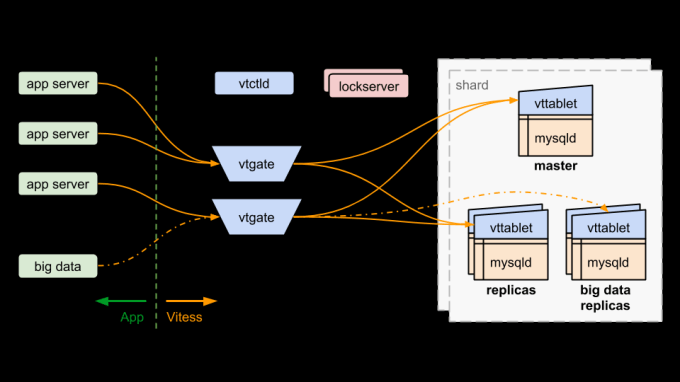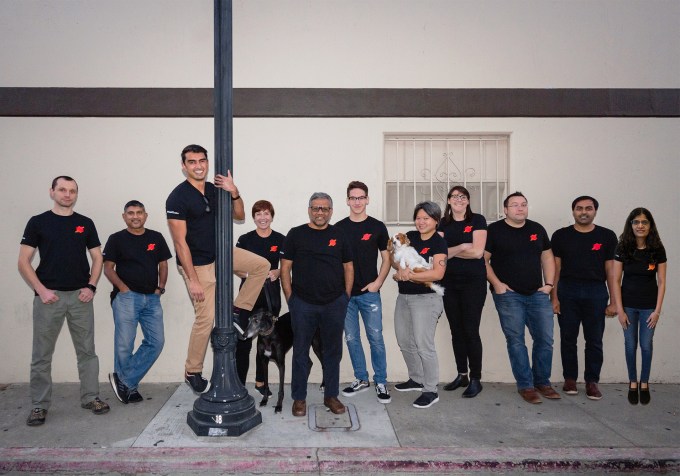Google and its flagship search portal opened the door to the possibilities of how to build a business empire on the back of organising and navigating the world’s information, as found on the internet. Now, a startup that’s built a search engine tailored to the needs of enterprises and their own quests for information has raised a round of funding to see if it can do the same for the B2B world.
AlphaSense, which provides a way for companies to quickly amass market intelligence around specific trends, industries and more to help them make business decisions, has closed a $50 million round of funding, a Series B that it’s planning to use to continue enhancing its product and expanding to more verticals.
The company counts some 1,000 clients on its books, with a heavy emphasis on investment banks and related financial services companies. That’s in part because of how the company got its start: Finnish co-founder and CEO Jaakko (Jack) Kokko had been an analyst at Morgan Stanley in a past life and understood the labor and time pain points of doing market research, and decided to build a platform to help shorten a good part of the information-gathering process.
“My experience as an analyst on Wall Street showed me just how fragmented information really was,” he said in an interview, citing as one example how complex sites like those of the FDA are not easy to navigate to look for new information and updates — the kind of thing that a computer would be much more adept at monitoring and flagging. “Even with the best tools and services, it still was really hard to manually get the work done, in part because of market volatility and the many factors that cause it. We can now do that with orders of magnitude more efficiency. Firms can now gather information in minutes that would have taken an hour. AlphaSense does the work of the best single analyst, or even a team of them.”
(Indeed, the “alpha” of AlphaSense appears to be a reference to finance: it’s a term that refers to the ability of a trader or portfolio manager to beat the typical market return.)
The lead investor in this round is very notable and says something about the company’s ambitions. It’s Innovation Endeavors, the VC firm backed by Eric Schmidt, who had been the CEO of none other than Google (the pace-setter and pioneer of the search-as-business model) for a decade, and then stayed on as chairman and ultimately board member of Google and then Alphabet (its later holding company) until just last June.
Schmidt presided over Google at what you could argue was its most important time, gaining speed and scale and transitioning from an academic idea into a full-fledged, huge public business whose flagship product has now entered the lexicon as a verb and (through search and other services like Android and YouTube) is a mainstay of how the vast majority of the world uses the web today. As such, he is good at spotting opportunities and gaps in the market, and while enterprise-based needs will never be as prominent as those of mass-market consumers, they can be just as lucrative.
“Information is the currency of business today, but data is overwhelming and fragmented, making it difficult for business professionals to find the right insights to drive key business decisions,” he said in a statement. “We were impressed by the way AlphaSense solves this with its AI and search technology, allowing businesses to proceed with the confidence that they have the right information driving their strategy.”
This brings the total raised by AlphaSense to $90 million, with other investors in this round including Soros Fund Management LLC and other unnamed existing investors. Previous backers had included Tom Glocer (the former Reuters CEO who himself is working on his own fintech startup, a security firm called BlueVoyant), the MassChallenge incubator, Tribeca Venture Partners and others. Kokko said AlphaSense is not disclosing its valuation at this point. (I’m guessing though that it’s definitely on the up.)
There have been others that have worked to try to tackle the idea of providing more targeted, and business-focused, search portals, from the likes of Wolfram Alpha (another alpha!) through to Lexis Nexis and others like Bloomberg’s terminals, FactSet, Business Quant and many more.
One interesting aspect of AlphaSense is how it’s both focused on pulling in requests as well as set up to push information to its users based on previous search parameters. Currently these are set up to only provide information, but over time, there is a clear opportunity to build services to let the engines take on some of the actions based on that information, such as adjusting asking prices for sales and other transactions.
“There are all kinds of things we could do,” said Kokko. “This is a massive untapped opportunity. But we’re not taking the human out of the loop, ever. Humans are the right ones to be making final decisions, and we’re just about helping them make those faster.”





 Today Facebook, Microsoft, YouTube and Twitter collectively announced a new partnership aimed at reducing the accessibility of internet services to terrorists. The new Global Internet Forum to Counter Terrorism adds structure to existing efforts by the companies to target and remove recruiting materials for terror groups from major web platforms. Together, the four tech leaders say they…
Today Facebook, Microsoft, YouTube and Twitter collectively announced a new partnership aimed at reducing the accessibility of internet services to terrorists. The new Global Internet Forum to Counter Terrorism adds structure to existing efforts by the companies to target and remove recruiting materials for terror groups from major web platforms. Together, the four tech leaders say they… 

 In an open letter to the Office and Management and Budget’s Intellectual Property Enforcement Coordinator, Google announced today that it opposes the practice of removing entire sites from search results.
In an open letter to the Office and Management and Budget’s Intellectual Property Enforcement Coordinator, Google announced today that it opposes the practice of removing entire sites from search results.